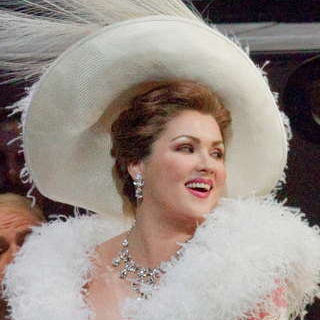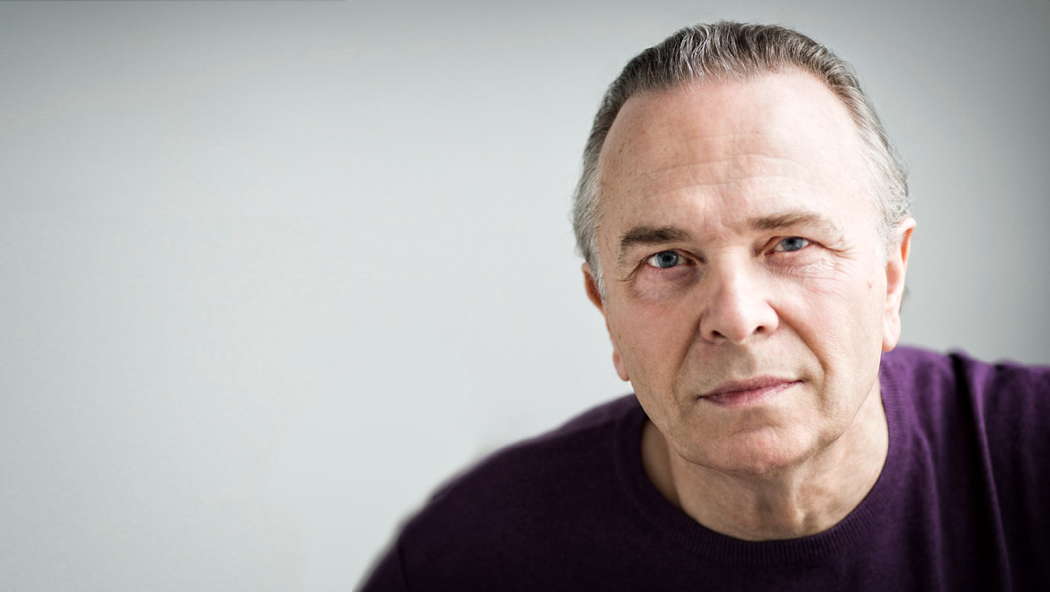 SPONSORED: Vocal Glory - Massenet's Manon in HD from New York Metropolitan Opera, enjoyed by Maria Nockin.
SPONSORED: Vocal Glory - Massenet's Manon in HD from New York Metropolitan Opera, enjoyed by Maria Nockin.
All sponsored features >>
All to Play For
MIKE WHEELER listens to Bruckner's Symphony No 8 from Mark Elder and the Hallé Orchestra
Conductor Sir Mark Elder is a self-confessed late convert to Bruckner, but it's been well worth the wait - Royal Concert Hall, Nottingham, UK, 1 March 2024. Before conducting the Hallé Orchestra in the Eighth Symphony - there's nothing like starting at the deep end - he gave one of those spoken introductions he's so good at, inviting us to approach the symphony with the image in our minds not of a speedboat but of an ocean liner, eventually coming into harbour. He also touched on the role of the four so-called 'Wagner' tubas Bruckner added to the orchestra, and his tendency to orchestrate in blocks of orchestral sonority. He ended by describing the symphony as a search, and wished those hearing it for the first time 'good luck!'

Mark Elder. Photo © Ben Ealovega
One of Bruckner's characteristic soft string tremolandos, underpinned here by sustained horns, set up our expectations, with the lower strings' theme less dark or brooding than usual, and with plaintive woodwind calls separating the phrases. The music was allowed to unfold with no undue interventions. The immense tutti passages, seemingly full of rage - that's never occurred to me before - melted away, leaving space for eloquent wind solos: the brief dialogue for horn (Laurence Rogers) and oboe (Stéphane Rancourt), in particular, stood out. The moments of strangeness made their full effect, and Bruckner's repeated figures generated increasing momentum. The quiet ending subsided wearily. From time to time I was stuck by what seemed fleeting reminders, in scoring or harmony, of Elgar. Elsewhere, I was even prompted to wonder how much Bruckner Shostakovich knew.
The Scherzo came across as both ländler and waltz - earthy and cosmic at the same time, and a reminder that Bruckner was reputedly a fine dancer. There was a distinct shimmer to the violin phrases hovering over the purposeful violas' and cellos' powerful theme at the start, and the network of woodwind lines in the second section unspooled with great clarity, and moments of expectation. The Trio section boasted another fine solo from Laurence Rogers, warm but not cloying string tone, and delectable flecks of light from the harps - three of them, as Bruckner wanted.
The suggestion of gently lapping water in the strings' intricate rhythmic figure at the start of the third movement had both motion and stasis. As the elegiac tone took hold, the strings really dug in, to produce a gutsy sound. It has often been claimed that Bruckner orchestrates like an organist - this amounts to an accusation in some quarters - with sudden tuttis like changes of stops or manuals. There are plenty of passages, particularly in this movement, that bear out this idea. The waves of successive climaxes were carefully built, with no unnecessary tempo fluctuations, while the performance maintained the dramatic tension as each climax was followed by a sharp cut-off and a still, calm moment. It may be a cliché to liken the cymbal clash and ringing triangle at the movement's culmination to a burst of sunlight, but here it seems unavoidable! Even so, it underpinned the rest of the orchestra rather than dominating the sound-picture, from where I was sitting, at least, but it cleared the air, and the gentle serenity that followed included the horns and Wagner tubas crooning what could almost have been a lullaby.
At the start of the finale there is still all to play for. The vitality of the strings' pulsing grace notes was all of a piece with crisp, alert playing from the brass. Again, tutti passages turned dark and threatening; again, moments of strange calm followed abruptly cut-off climaxes. As we began to sense Bruckner gathering himself for a huge leap forward, the moment when we hear the opening theme from the first movement signalled a final breakthrough, and the current felt unstoppable. The last and biggest climax of all, as Bruckner pulls off the remarkable feat of combining the opening themes of the first three movements, capped the entire performance, as it should.
Is there a commercial recording from Elder and the Hallé Orchestra in the pipeline? I hope so.
Copyright © 11 March 2024
Mike Wheeler,
Derby UK




